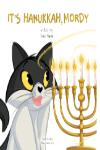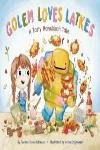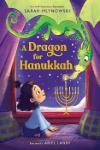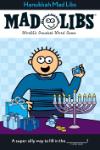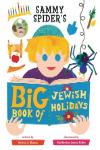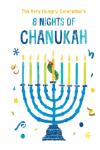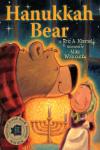An approachable, personal, and historical book on Jews, Ukraine, Russia, and Nazis

Buy this book at Amazon or for Kindle
Thoughts on The Borscht-Meister of Babi Yar by Roger Levine
Do you want to read an easy-to-read book that vividly shows a vital period and region of world history barely known in the USA? And does it without grandiose statements and through the authentic personal history of the author’s family? Then you have to read The Borscht-Meister of Babi Yar.
What the reader gets out of it partially depends on one’s background and level of knowledge of Ukrainian and European history of the 20th century (and beyond). About half of the book is pure history, describing events, processes, people, and circumstances in and around Ukraine. Starting with how the shtetls came into existence, how the countries of the Pale of Settlement region changed hands, and what kind of sufferings the Whites, the Ukrainians, the Russians, the nazis, and the Soviets caused for the Jews there. It sounds like an insufferable litany of sufferings, but the book is much more.
First of all, the style is very relatable; the writing style is conversational. I can hear in my head an elder, who went through it all, telling the story without unnecessarily embellishing it. I hate when people say, “I am just telling it as it is”, because usually there is a hidden agenda behind it, and often it means just the opposite, including twisting of the truth. Here, however, it fully applies: as far as I can tell, it is historically accurate, honest (hi)storytelling.
It is also pleasantly fast-paced. Each new paragraph includes new information about the past. If you are somewhat familiar with this history–like I am, who knows quite a bit about World War II, the nazis, and the Soviets, but not so much specifically about Ukrainian history—you will learn a lot and enjoy the process too. I was curious about what someone who knows much less about this topic would think of the book, so I asked my 19-year-old child to read it. (With my not-so-hidden agenda to educate her.) She enjoyed and was fascinated by the twists of the personal stories. She was also shocked by the larger events surrounding them. She kept asking what is fictional and what is based on actual events. I had to tell her that the history is and was real.
As you can see from the above, for me, re-learning a half-forgotten history was the most exciting part of the book. But for others, it could be the tribulations and triumphs of a family. The two can not be separated, which is the book’s extraordinary strength. How the historical becomes personal and how the personal is always historical too. The drop of Katya’s and Yakov’s love in the ocean of the waves of violence represents the whole.
I don’t want to spoil the story for you, but you can guess from the title what kind of vocation happens to the young boy who becomes the titular character. Borscht has many layers, and I am not talking about the soup itself but its role in the book. It ensures survival beyond providing nutritional value and simple pleasure in a world lacking both. The ability to prepare is a life-saving skill in one murderous regime after another. It is also a symbol of the cross-fertilization of cultures. This enables a Jewish boy to connect to a Ukrainian girl and weave together two cultures. Borscht serves as a link to cultural heritage and familial bonds. Borscht-making becomes a metaphor for resilience and cultural preservation. The soup represents comfort and healing in the face of unimaginable loss. In short, borscht becomes a symbol for life, death, and rebirth.
If you like to think deeper, this tome has plenty to chew on. Here are some ideas that you may want to keep an eye on in this rich text:
- Babi Yar as a symbol of both destruction and remembrance
- The act of cooking as a representation of cultural continuity
- References to Jewish folklore and religious texts add depth to the narrative
- Allusions to other Holocaust literature place the novel within a broader context of remembrance
- How ordinary people can become complicit in atrocities
- The role of remembrance in personal and collective healing
- The duties of survivors to bear witness and preserve memory
- The impact of inherited trauma on subsequent generations
I grew up with soviet era jokes but have never heard the one on the second page of the book:
Q: What is the definition of a Soviet Historian?
A: Someone who can accurately predict the past.
If you don’t get the joke, then one reason to read the book is to get an understanding of the hypocritical Soviet history. If you get it, then read it as a reminder and as a comparison to the nazi system.
This historical novel offers a poignant and richly detailed portrayal of a family’s life in and around 20th-century Ukraine. The author masterfully weaves personal and historical narratives, creating a deeply moving experience that resonates with and educates the readers. I highly recommend this book to anyone seeking a profound exploration of resilience and heritage in the face of adversity.
The author’s website: rogerlevine.com, Facebook page and YouTube channel.
Disclaimer: I have received a copy of this book and a small amount from the author, which did not affect my review.
Year first published: 2024

